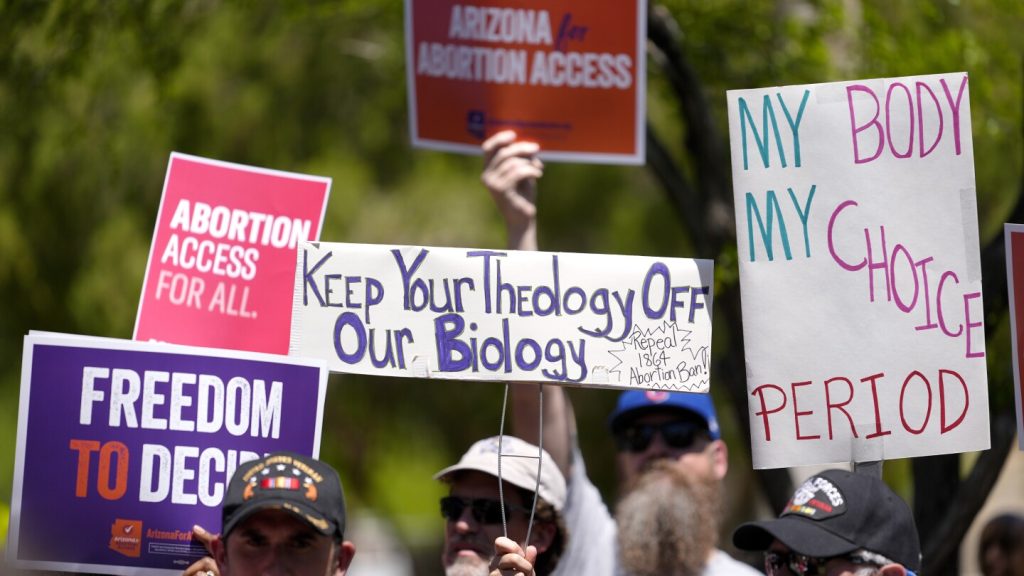Recent developments in courts and state legislatures across the United States have reignited the debate over abortion rights, following the overturning of Roe v. Wade. In Arizona, lawmakers have moved to repeal a near-total abortion ban that dates back to 1864, in response to a recent Arizona Supreme Court ruling allowing enforcement of the ban due to the overturning of Roe v. Wade. Pressure from various political figures, including the governor of California, has influenced this decision. California’s governor has proposed a measure that would allow Arizona doctors to provide abortions for Arizona patients in California without additional licenses until November, emphasizing cross-border healthcare access.
Meanwhile, the U.S. Supreme Court has revisited the issue of abortion, with the conservative majority expressing skepticism toward the Biden administration’s argument that Idaho should allow abortion during medical emergencies. This case, along with another concerning the FDA’s approvals for a medication used in abortions, is expected to be ruled on by June. In Tennessee, a new measure prohibiting minors from obtaining abortion out of state without parental consent has passed the state Senate. If signed into law, this would only impact the Tennessee portion of the journey, not the actual crossing of a state line. The legislation in Tennessee mirrors a similar law passed in Idaho last year, which is currently facing legal challenges.
On a more positive note for abortion rights supporters, Maine has become the latest state to enact laws protecting providers who offer abortion services to out-of-state patients. This move reflects a broader trend among Democrat-controlled states to expand access to abortion and protect providers, in contrast to the efforts in GOP-dominated states to restrict access. Maine’s law will take effect in the summer and also covers gender-affirming health care. Additionally, several Republican-controlled states have implemented bans on gender-affirming care for transgender minors, further highlighting the divide in abortion and LGBTQ+ rights across the country.
Overall, the ongoing battles in state legislatures and courtrooms underscore the complexities and deeply entrenched divisions surrounding abortion rights in the United States. The resurgence of these debates following the overturning of Roe v. Wade highlights the enduring significance of this issue in American politics. While some states are moving to expand access to abortion and protect providers, others are tightening restrictions and imposing bans. The outcomes of these legal battles will have far-reaching implications for reproductive rights and healthcare access in the country, with decisions expected in the coming months. As the fight over abortion rights continues to unfold, it remains a deeply contentious and polarizing issue that will shape the future of women’s health and bodily autonomy in the United States.


